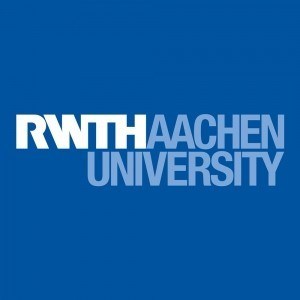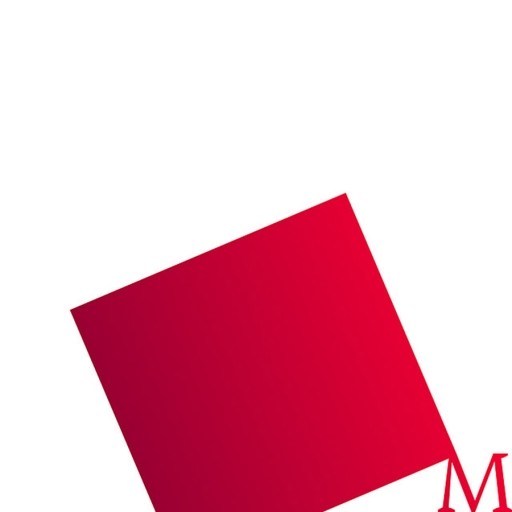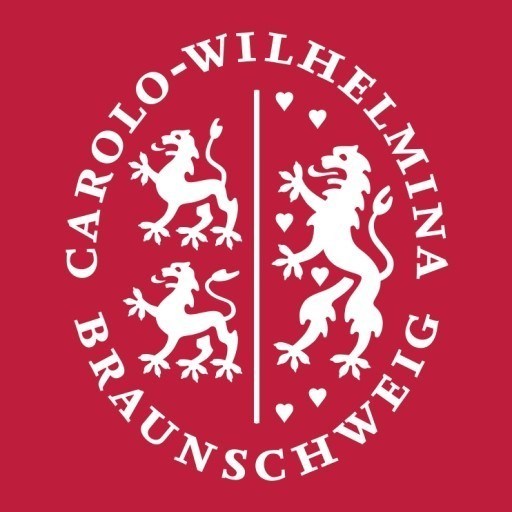Photos of university / #uni_hamburg
The Master’s program in Mathematical Modelling in Engineering: Theory, Numerics, Applications at the University of Hamburg offers students a comprehensive education in advanced mathematical techniques applied to engineering problems. This interdisciplinary curriculum is designed for students who aim to develop a deep understanding of mathematical modeling, numerical simulation, and their practical applications in various engineering fields. The program emphasizes the formulation of mathematical models based on real-world engineering challenges, the development of numerical algorithms for their solution, and the interpretation of results to inform engineering decision-making processes.
Throughout the course of study, students will explore fundamental topics such as differential equations, optimization, computational methods, and stochastic processes, alongside specialized modules tailored to engineering applications. The program combines rigorous theoretical instruction with practical training, ensuring graduates acquire both academic knowledge and hands-on experience. Students will have access to state-of-the-art computational tools and software, allowing them to perform high-quality simulations and data analysis relevant to industries such as mechanical engineering, electrical engineering, automotive engineering, and aerospace.
The program encourages an applied approach, integrating case studies, project work, and collaborations with industry partners to prepare students for careers in research, development, or technical consultancy. Graduates will be equipped to tackle complex engineering problems through innovative modeling strategies, leveraging numerical methods to optimize design, improve efficiencies, and predict system behaviors under uncertain conditions. This Master’s program is ideal for individuals with a strong background in mathematics, engineering, or natural sciences who are interested in advancing their expertise in mathematical modeling and computational techniques in an engineering context.
With a strong emphasis on international standards and cutting-edge research, the program prepares students for future academic pursuits or professional roles in industry where advanced mathematical problem-solving is essential. The University of Hamburg’s vibrant academic environment and extensive research network provide students with ample opportunities for interdisciplinary cooperation, internships, and participation in innovative projects. Upon graduation, students will be well-positioned to contribute to technological advancements and solve engineering challenges through superior mathematical and numerical skills.
Educational organisation
The MATHMODS MSc course is divided into four semesters. Each semester totals 30 ECTS credits. All courses will be taught in English. Students are free to attend a local language course (3 ECTS credits) during the semester spent at each partner university.The mobility scheme will involve at least two locations.
First semester: Theory at the University of L'Aquila (UAQ)
All students will attend their first semester at the University of L'Aquila in Italy. It will be devoted to the study of the most theoretical part of our programme. In particular, students will obtain 30 ECTS credits by successfully attending the five courses below (6 ECTS credits each). Students will also have to attend an Italian language course (3 ECTS credits).
1) Functional analysis in applied mathematics and engineering
2) Dynamical systems and bifurcation theory
3) Applied partial differential equations (PDEs)
4) Control systems
5) Fluid dynamics
Second semester: Numerics at University of Nice - Sophia Antipolis (UANS) or University of Hamburg (UHH)
All students will attend their second semester at the University of Nice - Sophia Antipolis in France or at the University of Hamburg. Students will obtain 30 ECTS credits by successfully attending the following five courses (6 ECTS credits each):
1) Algorithms and data structures
2) Numerical approximation of PDEs by finite differences and finite volumes
3) Numerical methods for PDEs - finite elements
4) Optimisation
5) Industrial seminar and training
Third semester: Advanced computational methods in material science
- University of Hamburg: Modelling, simulation, and optimisation of complex systems
- University of L'Aquila
- OPTION 1: Modelling and simulation of electronic devices
- OPTION 2: Mathematical models in life sciences
- Autonomous University of Barcelona (UAB): Stochastic modelling and optimisation
- Gdansk University of Technology (GUT): Advanced computational methods in material science
- University of Nice-Sophia Antipolis: Mathematical modelling applications to biology and finance
Fourth semester: Thesis (UAB / UHH / UAQ / GUT / UNSA)
In the fourth semester, all students will prepare their Master's theses.
Study abroad unit(s)
Students study at least at two different universities of the consortium. They all start the first semester at the University of L'Aquila (UAQ) (the coordinating university). This will guarantee a uniform knowledge platform for all students. The second semester is spent either at the University of Hamburg in Germany (UHH) or the University of Nice - Sophia Antipolis in France (UNSA).The second year is divided as follows: the third semester is dedicated to a specialisation at one of the partner universities, which all offer a specific programme related to their particular field of excellence. The MATHMODS team will decide on the institution at which each student will spend their third semester (L'Aquila, Barcelona, Nice, Gdansk, Hamburg). In the fourth semester, all students will prepare their Master's theses at the university where they spent their third semester.
Internships
The second semester includes an obligatory internship.Forms of assessment
Students must take written and oral exams, depending on the procedure preferred by the lecturer, at the end of each semester. Furthermore, the lectures are combined with tutorials. Students must submit written exercises regularly. Each semester comprises 30 ECTS (five courses of six ECTS each in Hamburg).Course objectives
Mathematical modelling lies at the heart of most current technological innovations and has become a fundamental tool in many fields of engineering. Essentially multidisciplinary in its applications, mathematical modelling and simulation is in its own right a key technology whose presence is bound to increase within efficient industries and business innovation departments. The proposed programme reflects this multidisciplinarity, drawing on the unifying mathematical aspects from the various and often separate engineering disciplines. This allows the development of an essentially unified methodological approach to modelling and simulation of real engineering challenges.The new joint programme will be research-oriented. It is closely linked to the research activities and facilities at the participating universities. Special attention is given to exchange in didactics and pedagogies.
The programme is designed to make optimal use of the specific expertise available at each participating university. It will enable each student to profit from the best education each partner has to offer and to gain experience in an international environment. Student and staff mobility are integral parts of this programme.
Language requirements
Candidates must show that they have an appropriate level of spoken and written English for full academic and social participation. This usually means at least TOEFL iBT 80, CBT 213, PBT 550, or equivalent, or a certificate documenting at least level B2 according to the Common European Framework of Reference for Languages.Academic requirements
Bachelor's degree in mathematics, engineering, or natural sciencesEnrolment fees
There is a semester fee of 310 EUR per semester. This fee includes a semester ticket covering public transport in the Hamburg metropolitan area.Costs of living
We recommend that single students budget at least 800 EUR per month to meet personal expenses (accommodation, living, health insurance, books).Job opportunities
Generally, students who enrol in a full-time programme will only have limited time for part-time jobs.As a rule, students who hold an international student visa may work for up to 120 full days or 240 half days per year. Further information on work regulations for international students at Universität Hamburg can be found here: http://www.uni-hamburg.de/piasta/beratung_e.html.
Funding opportunities within the university
International full-time students may apply for merit scholarships or exam grants of the University of Hamburg. For more information, please use the provided link. We also recommend contacting our colleagues in the Department of International Affairs for further guidance.http://www.uni-hamburg.de/internationales/studieren-an-der-uhh/finanzierung-des-studiums_e.html
Arrival support
Students and researchers can find information on how to get started in Hamburg on the website of the PIASTA programme at the Universität Hamburg Department of International Affairs (http://www.uni-hamburg.de/piasta_e.html) and on the website of the Hamburg Welcome Center (http://english.welcome.hamburg.de).During the International Welcome Week organised by PIASTA, you will be able to get in touch with all the important institutions and contacts that are particularly useful for international students. See: http://www.uni-hamburg.de/piasta/veranstaltungen/international-welcome-week_e.html.
Services and support for international students
The Universität Hamburg CampusCenter is the first port of call for all current and prospective students and offers information, services, and counselling. The PIASTA programme at the Universität Hamburg Department of International Affairs offers support and advice for German and international students, as well as cultural events and workshops.For more information, refer to: http://www.uni-hamburg.de/piasta and https://www.uni-hamburg.de/en/campuscenter.html.
The welcome service of the Universität Hamburg Department of International Affairs is the first contact address for international visiting researchers and others. See: http://www.uni-hamburg.de/internationales/wissenschaft/service-international_e.html.
Accommodation
Accommodation is available through the "Studierendenwerk" (students' services) or on the private market. The "Studierendenwerk" provides rooms in halls of residence, most of which are single rooms with shared kitchens and showers/WCs. We strongly advise students and researchers to arrange accommodation prior to arriving in Hamburg, as demand for affordable accommodation is sometimes larger than supply.For more information on how to find accommodation and how to plan your first steps in Hamburg, please refer to: https://www.uni-hamburg.de/piasta/beratung/doc/willkommen.pdf.










